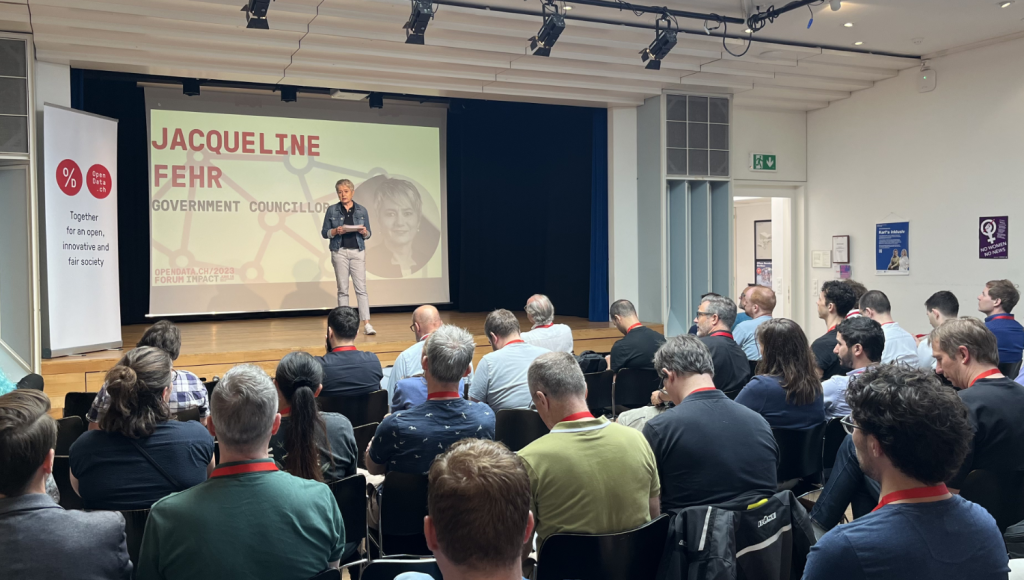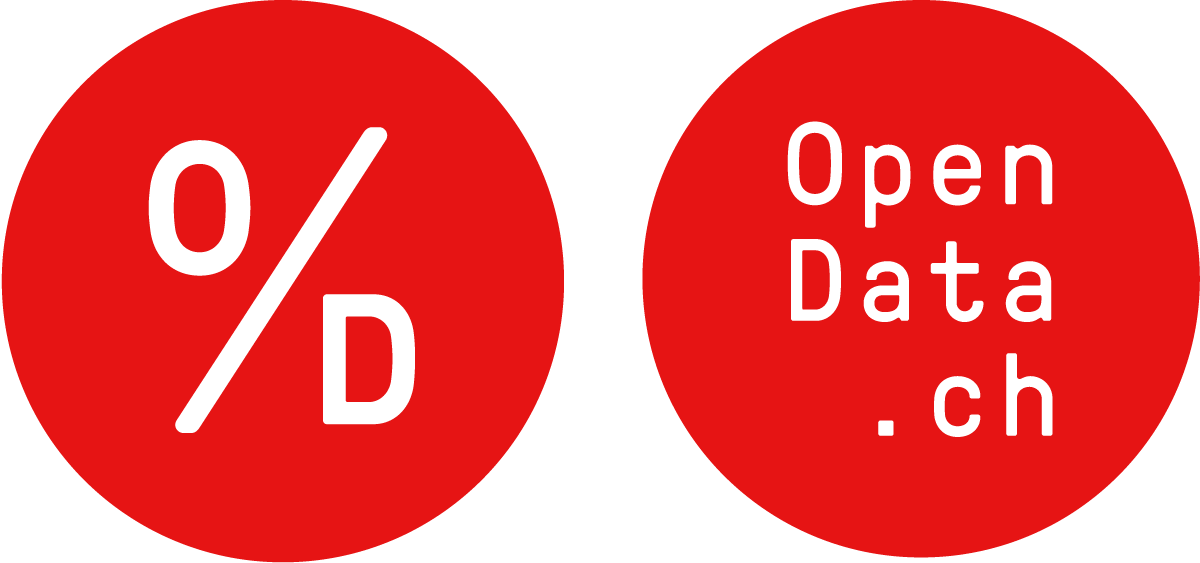Why Jacqueline Fehr thinks we could be a little bolder.
- Forum
At our Opendata.ch/2023 Forum, we had the honour to welcome Government Councillor Jacqueline Fehr, Canton of Zurich’s head of the Department of Justice and Home Affairs since 2015 and therefore, among other things, responsible for the Statistical Office and data policy.
What she said in her opening speech strikes us as worth sharing with all of you. This was not a standardised text from a professional representative, but a powerful and passionate plea for the importance of Open Data for society.
But read for yourself. We would like to take this opportunity to once again say “Thank you, Jacqueline Fehr”, for visiting us and for this motivating call for more self-confidence in the Open Data community. We may not want to become posh, but we do want to be heard.

«Dear representatives of research, business, administration, politics, journalism and civil society. Dear Open Data community. In other words: Dear craftsmen and women of digital progress.
You can well imagine that in my function as a government councillor, I’m invited to a great number of events. Every now and then, it gets pompous, sometimes there are even red carpets, and the guests are of great importance, too.
But the importance that some of these events ascribe to themselves doesn’t necessarily correspond to their socio-political significance. And that’s ok. But today, with you, I think it’s the other way round. Well, I didn’t know exactly how much glamour to expect here with you: But those who meet at the “Karl” don’t tend to be pompous.
Yet, you would have every reason to prance a bit, to draw attention to yourself, to be seen and heard. In my view, this event or – and even more so – the work and goals of the open data community are of enormous socio-political importance.
Data is a central resource of our time. No matter whether the data is about access to education for different groups of the population. Whether it describes our path towards a more climate-friendly policy or compares the average pay between women and men. Virtually any decision is based on data. It determines our actions and it’s therefore absolutely crucial how we work with the data. It must be valid, it must be easy to read and as many people as possible should have easy and quick access to this data.
The Government Council of the Canton of Zurich has set itself the goal for the next four years to make the strategic resource of data as useful and diverse as possible. And I am confident. As a member of the government and head of the Department of the Interior, I am responsible – if you will – for the statistics of the canton of Zurich. And it is with some pride that I say this: Fortunately, we have people in the canton of Zurich who know exactly how to deal with open government data.
There are currently around 9200 data sets on opendata.swiss. I don’t mean to brag but the canton of Zurich has made a huge contribution to this. I would like to congratulate the Zurich OGD teams. You have your nose in the wind.
Of course, one can always do better. For instance, apart from OGD, we still have to work on the following: The data processes must be more consistent. I think I’m not the only one who gets annoyed when I have to enter the same data into a form for the umpteenth time, data that I have deposited in an official place several times before. My need for simplification may not be at the core of the Open Data movement. But since I was in Estonia about 8 years ago and was able to see for myself the “once only” principle in detail, I know that much more is possible.
Of course, getting there isn’t so simple. Swiss administrative structures have grown over centuries and are now very, very closely knit. That’s positive because it means that the Confederation can cope with a great many life situations. But the many individual applications that aren’t compatible yet are slowing down digitalisation considerably.
Nevertheless: We’re working on it. The federal government and the city of Zurich are already treating data according to the principle of “open by default”. In the canton of Zurich, this is also the direction to take. A corresponding amendment to the law is underway and well advanced.
I look forward to continuing along this path. Finally, I will do some party politics: I am a Social Democrat. When I think about the basic principles that should drive the Open Data movement forward, they are quintessentially social democratic: collaborate and share. So if you want to make progress with Open Data, rely on social democratic principles!
I’m coming to the end – without bothering you with party politics: What does it take for the Open Data story to become a success story? In my opinion it’s firstly
- to tackle the change together: Train people and infrastructure so that every single person can publish the data they work with every day. That strengthens us all.
- Secondly: look at Open Data as a larger whole: How is the data connected, what do we need it for? And then think in terms of thematic data spaces: look at what data we need to answer a question, then see whether we have it and where we can get it and which one could be published openly.
- And thirdly: moving from the concrete to the general: the more of these data spaces we look at, the more complete the whole picture gets.
How exactly all this is supposed to work – well, you’re the experts! I’ve been told that the next hot topic is the interfaces. That makes sense. If we manage to get the many individual digital applications to “talk” to each other, if I can put it that way, then digitisation will happen very quickly.
It’s cool that you’re meeting here to join forces and share. And by the way, sign-up forms to the Social Democratic Movement can be found on the net….
I am wishing you a very successful forum.»
(Which we had!)
You can find the slides for all the other presentations and workshops held at our Opendata.ch/2023 Forum on the event page.
